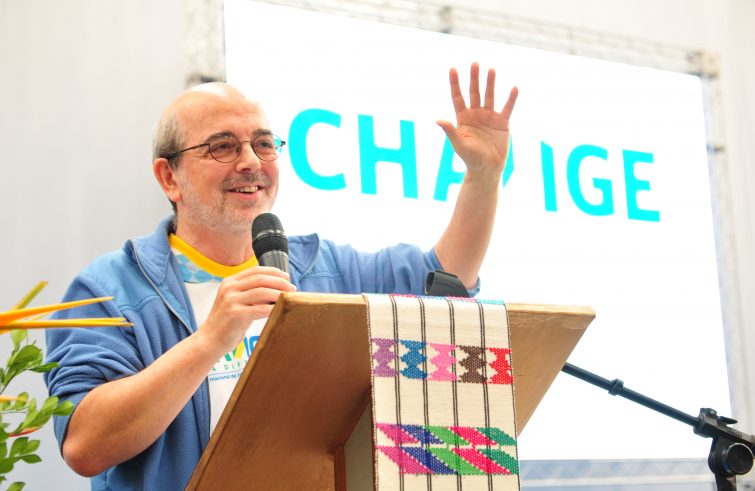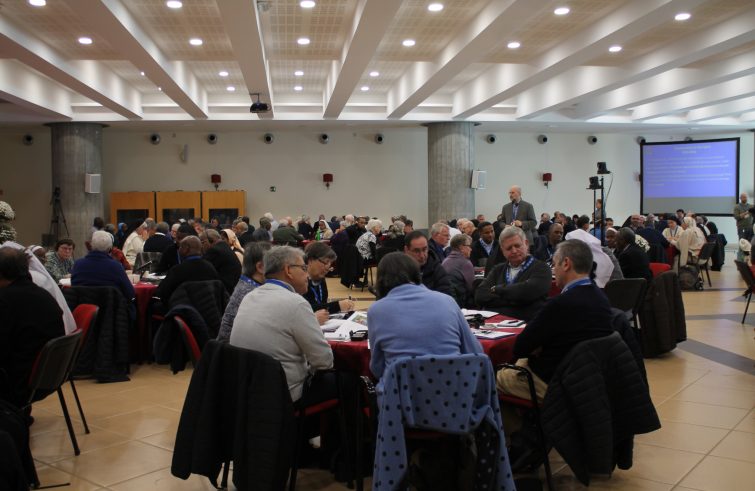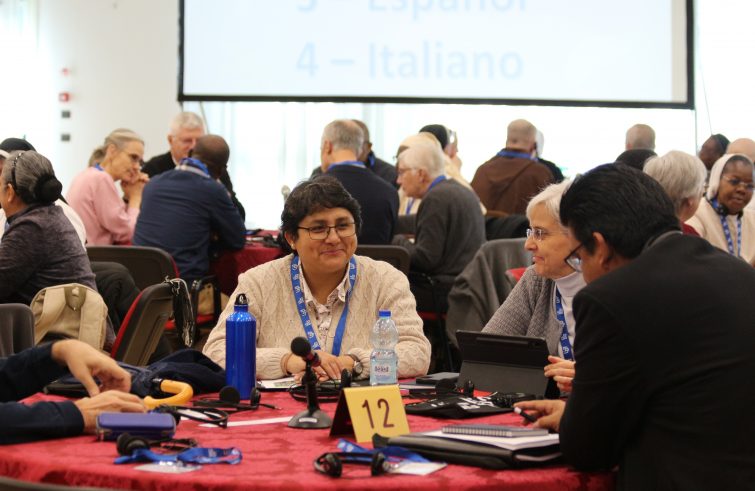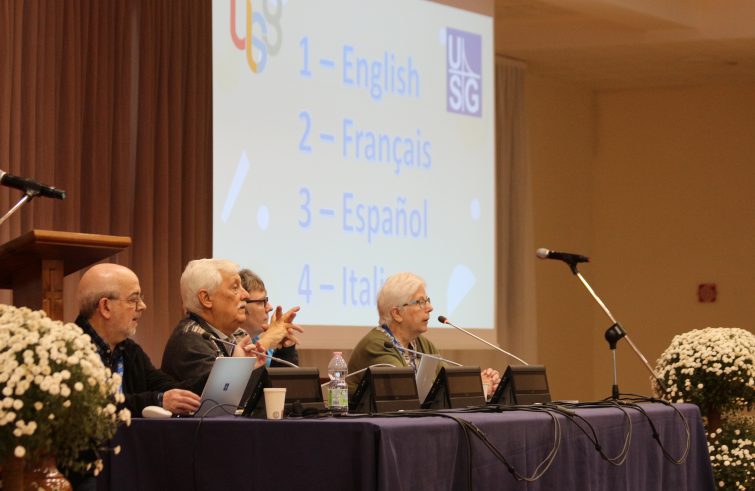
“To give a single voice to religious life.” With these words, Br. Emili Turú Rofes, Secretary General of the Union of Superiors General (USG), summed up the highlights of the 100th General Assembly of the USG, jointly organised with the International Union of Superiors General (UISG). The Assembly, which ended today in the Italian city of Sacrofano, had as its theme “Synodality. A renewed call to the prophecy of hope.”
Is the decision to celebrate the Assembly together, men and women, a message of unity of religious life?
We are following the path of the Synod together. In numerical terms, the picture is quite different. The International Union of Superiors General represents about 2,000 congregations, including diocesan congregations, while the Union of men comprises about 200. Cooperation has increased in recent years. The possibility of creating a single Union is being explored, but some operational difficulties need to be overcome. Perhaps a federation would be a possibility. Who knows? What matters is that religious life speaks with one voice.
To give women greater recognition in the Church?
Right now, whenever the opportunity arises, the female President must speak on behalf of the women and the male President on behalf of the men.
We stand together with them in the desire to open the doors of the Church to women, to give women the place where they truly belong. Religious life stands united in this journey.
How has the Synod entered the monasteries, communities and the religious institutes around the world?
Consecrated Life is synodal to begin with. Consider, for example, the participation of all in the election of the superior. St Benedict’s invitation was to listen to the youngest in the community, because it is often to the youngest that the Lord reveals solutions. This first phase of the Synod has shown that the consecrated life is a place of inspiration. Then, of course, it is sometimes difficult to put it into practice: there are cases of abuse of authority, of not being listened to. In the beginning, the parliamentary method was used because it was considered the most democratic way to listen to each other. But now we are seeing that it is not enough, that something else is needed.
- (Foto Ufficio Comunicazione UISG)
- (Foto Ufficio Comunicazione UISG)
- (Foto Ufficio Comunicazione UISG)
What is it?
We should engage in contemplative listening, as the Synod proposes. This really makes a difference. It is very important for the Church and for the world. Learning to engage in dialogue even with the person poles apart from me, with a view to mutual understanding.
To engage in dialogue is to listen in order to understand, not to argue, but to welcome. If we all make this effort, there will be a communion that transcends differences of opinion.
We can be in communion even when we think differently.
From Ukraine to the Holy Land, more and more bloodshed is taking place…
These are the signs of a new era. This is what has been said since the Second Vatican Council, and the Pope often repeats it: this is not an era of change, but a change of epoch. An era is ending and we can see the signs. I do believe that men and women religious are committed to what the Pope writes in Fratelli tutti: a new world is in the making.
Friars, monks and nuns are present in the most tormented areas of the world. In Gaza, under the bombs, they have remained close to the population. Why?
Sometimes we may seem ridiculous for countering the power of weapons with the power of love. We may seem foolish in the eyes of the world. But we know that in Palestine the religious are in communion with the people. That in Ukraine they are with the people, and the same in so many African countries afflicted by violence and war.
We believe in the power of love. It is the engine of change.
Everything seems to suggest that we should not be hopeful. And yet, because we believe in the power of the Gospel and in the power of love that overcomes the power of weapons and destruction, we know that being hopeful is prophetic. The Synod is a very important moment for affirming that we are united with the Pope. And that we must never lose hope.














